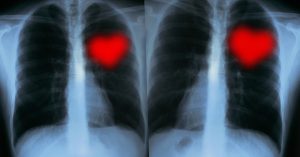Your Leg and Arm Pain Could Indicate a More Severe Heart-Related Illness
Surprisingly, claudication isn’t technically a disease. It’s actually a symptom of a disease — peripheral artery disease. Although treatable, peripheral artery disease is a potentially serious condition that restricts the ability of your blood vessels to circulate blood. This limits the amount of blood flowing to your legs and arms, which creates complications for those hoping to maintain an active and pain-free lifestyle. In this article, we’ll detail everything you need to know about claudication, including its symptoms and causes. If you believe that the pain in your legs and arms can be attributed to claudication, consult a cardiologist in Tampa from Ascent Cardiology Group to discuss your treatment options.
But what about people who don’t exercise or live a largely sedentary lifestyle? For these people, intermittent pain may still be felt during less-strenuous activities like shopping or gardening. The longer claudication goes untreated, the more apparent the pain will become. For instance, individuals may feel pain in their legs or back while sitting or lying down in the later stages of claudication. Discolored skin or ulcerations can also occur in those with severely restricted blood flow, leading to sores on the legs, feet, toes, arms, or fingers. If you notice that your toes or fingers have taken on a bluish hue or feel cold or clammy, you should consult a cardiologist in Tampa.
Atherosclerosis and, by extension, peripheral artery disease, are the main causes of claudication, but there are other potential causes, too. Spinal stenosis, peripheral neuropathy and, certain musculoskeletal conditions can also lead to claudication. There are many factors that can increase your risk of developing atherosclerosis and, therefore, claudication, including:
• Age: 50+ (Smokers and Diabetics)
• Age: 70+
• Diabetes
• Family History
• High Cholesterol
• High Blood Pressure
• Obesity (BMI > 30)
• Smoking
If you are experiencing pain in your arms or legs, you may be suffering from a type of pain known as claudication. Consult a cardiologist in Tampa, FL, to learn more about diagnosis and treatment. In the meantime, you can take some simple steps to control your condition, such as:
• Eat Healthy (Reduce Saturated Fat)
• Quit Smoking
• Reduce Your Cholesterol and • Blood Pressure Levels
• Regulate Your Body Weight
The content, views, and opinions communicated on this website do not represent the views of Ascent Cardiology Group. Reliance on any information provided by this website is solely at your own risk. Although this website contains links to other medical websites, this is strictly for informational purposes. Ascent Cardiology Group is not responsible nor do they approve of the content featured on any third party linked websites referenced on this website.

Stress and Heart Disease: What You Can Do to Improve Your Heart Health
Working long hours, filling up free time, and taking on additional responsibilities is a way of life for Type A

What is Nuclear Cardiology?
Nuclear cardiology is a subspeciality of general cardiology that involves the use of radioactive substances and advanced medical imaging modalities

Coronary Heart Disease: What Is It and How Is It Treated?
In addition to being the most common type of heart disease, coronary heart disease is the deadliest. In fact, it’s
What Your Family History Says About Your Heart Health
Below, we discuss how family history — your genes and upbringing — is a key indicator in determining your risk of developing heart disease. If your parents, siblings, or close relatives have been afflicted with heart disease, consider seeking a heart specialist in Tampa Bay who can diagnose your condition.
• Congenital Heart Disease
• Coronary Artery Disease
• Cardiomyopathy
• Heart Failure
• Heart Valve Disease
• Abnormal Heart Rhythms
Inherited risk factors like diabetes, high blood pressure, and high cholesterol can also lead to heart disease and may shed light on who in your family is susceptible to developing a heart-related problem. For assistance in diagnosing and treating these conditions, consult a Tampa heart specialist from Ascent Cardiology Group.
There are, of course, other characteristics that are beyond your control, such as your age, sex, and race or ethnicity. All of these risk factors can stack up and make it seem like heart disease is inevitable, but the only way to know for sure is to contact a Tampa heart specialist who can set your mind at ease and determine what treatment, if any, is right for you.
The content, views, and opinions communicated on this website do not represent the views of Ascent Cardiology Group. Reliance on any information provided by this website is solely at your own risk. Although this website contains links to other medical websites, this is strictly for informational purposes. Ascent Cardiology Group is not responsible nor do they approve of the content featured on any third party linked websites referenced on this website.

Stress and Heart Disease: What You Can Do to Improve Your Heart Health
Working long hours, filling up free time, and taking on additional responsibilities is a way of life for Type A

What is Nuclear Cardiology?
Nuclear cardiology is a subspeciality of general cardiology that involves the use of radioactive substances and advanced medical imaging modalities

Coronary Heart Disease: What Is It and How Is It Treated?
In addition to being the most common type of heart disease, coronary heart disease is the deadliest. In fact, it’s
Staying Active With Heart Disease
When your heart is strong, there’s a reduced chance of you succumbing to chest pain and other symptoms during exercise, which helps you sustain longer periods of increased activity. Other benefits to exercise include reduced blood pressure and cholesterol, weight loss, and strong bones. Those suffering from diabetes can control their blood sugar more effectively by exercising.
When you consult a cardiologist in Tampa from Ascent Cardiology Group, an experienced medical professional can tell you which exercises are best for your overall health and provide tips for easing back into an active lifestyle. Some potential recommendations may include:
• Focus on aerobic activities. Your heart and lungs benefit most from exercises that push them to use oxygen. Aerobic activities also improve blood circulation. Try to increase the intensity of these exercises moderately every session.
• Start slowly. Walking, swimming, light jogging, and biking are all examples of exercises that you can perform without worrying about overdoing it.
• Stretch before you start exercising to prevent other injuries. If you pull a muscle in your leg, you might not be able to run comfortably. If you can’t perform the exercise, your heart won’t benefit.
• If you start to get tired or feel you are experiencing heart symptoms, take a break and cool down.
• Wear the proper clothing and footwear during exercise.
• Pay attention to the weather. If it’s hot, exercise in the morning or in the evening. If it’s cold or snowy, exercise inside. Working out in freezing temperatures is ill-advised for those with heart disease.
• Supplement your aerobic exercises with resistance weight training, which helps you improve your strength and muscular elasticity.
The content, views, and opinions communicated on this website do not represent the views of Ascent Cardiology Group. Reliance on any information provided by this website is solely at your own risk. Although this website contains links to other medical websites, this is strictly for informational purposes. Ascent Cardiology Group is not responsible nor do they approve of the content featured on any third party linked websites referenced on this website.

Stress and Heart Disease: What You Can Do to Improve Your Heart Health
Working long hours, filling up free time, and taking on additional responsibilities is a way of life for Type A

What is Nuclear Cardiology?
Nuclear cardiology is a subspeciality of general cardiology that involves the use of radioactive substances and advanced medical imaging modalities

Coronary Heart Disease: What Is It and How Is It Treated?
In addition to being the most common type of heart disease, coronary heart disease is the deadliest. In fact, it’s
How Diabetes Leads to Heart Disease
• Coronary Heart Disease
• Heart Failure
• Diabetic Cardiomyopathy
In addition to heart disease, diabetes can lead to heart failure, stroke, and peripheral arterial disease. While it may seem like nothing more than a preventable inconvenience, diabetes is a serious condition that can lead to life-threatening complications if not kept in check.
If you are suffering or believe you are suffering from diabetes, there’s nothing for you to be ashamed of. Diabetes is a common disease that afflicts millions of Americans. More importantly, it’s a preventable and treatable condition.
If your diabetes has lead to heart disease, you may experience severe symptoms or no symptoms at all. Those that silently suffer from heart disease do so at the risk of suffering a larger complication later in life, such as a heart attack.
At Ascent Cardiology Group, we specialize in interventional cardiology in Tampa. With the use of advanced, minimally invasive techniques, such as radial artery catheterization, we can diagnose and effectively treat your condition. Put your health first by trusting a doctor that has dedicated his life to improving the lives of patients who struggle with heart disease. Trust Dr. Diwadkar and the team of cardiologists at Ascent Cardiology Group.
The content, views, and opinions communicated on this website do not represent the views of Ascent Cardiology Group. Reliance on any information provided by this website is solely at your own risk. Although this website contains links to other medical websites, this is strictly for informational purposes. Ascent Cardiology Group is not responsible nor do they approve of the content featured on any third party linked websites referenced on this website.

Stress and Heart Disease: What You Can Do to Improve Your Heart Health
Working long hours, filling up free time, and taking on additional responsibilities is a way of life for Type A

What is Nuclear Cardiology?
Nuclear cardiology is a subspeciality of general cardiology that involves the use of radioactive substances and advanced medical imaging modalities

Coronary Heart Disease: What Is It and How Is It Treated?
In addition to being the most common type of heart disease, coronary heart disease is the deadliest. In fact, it’s